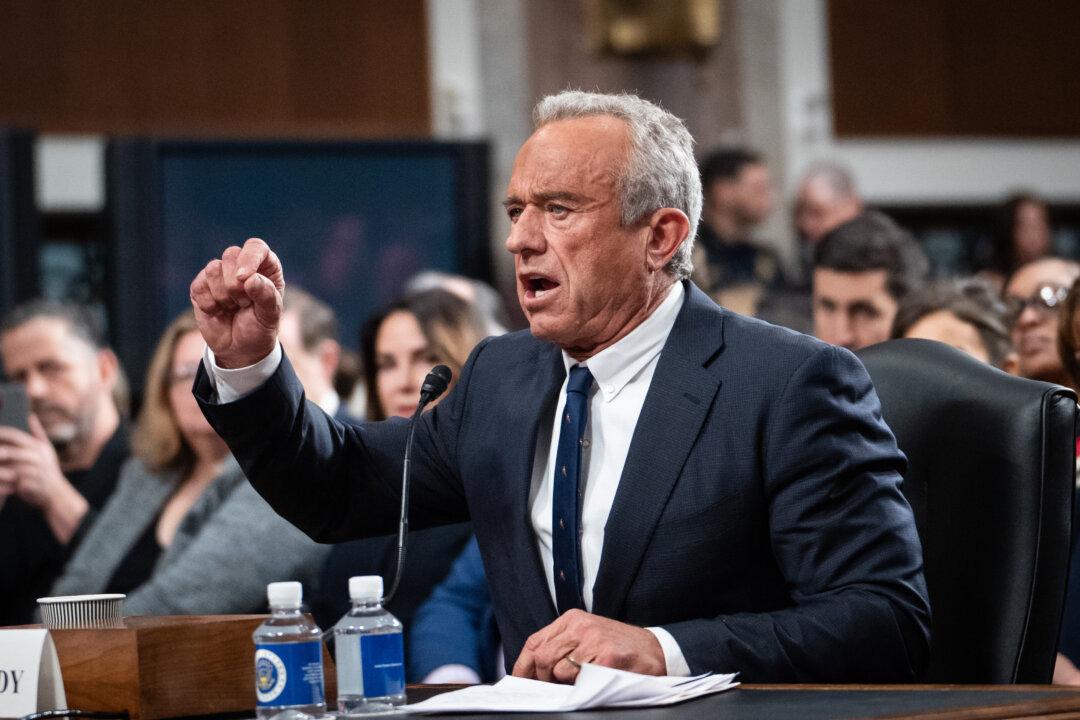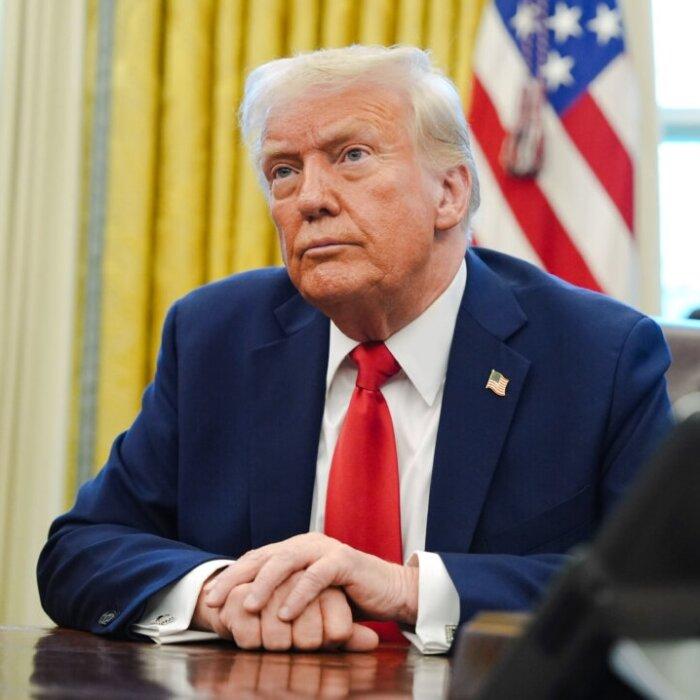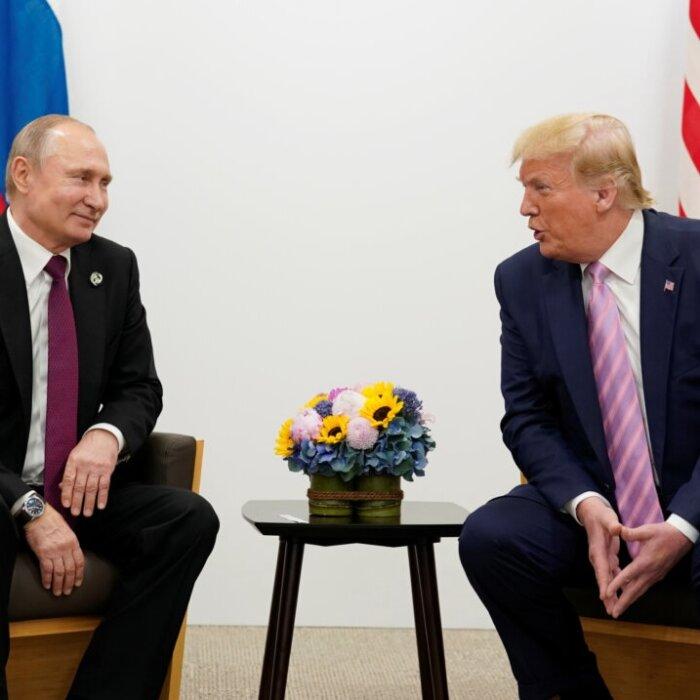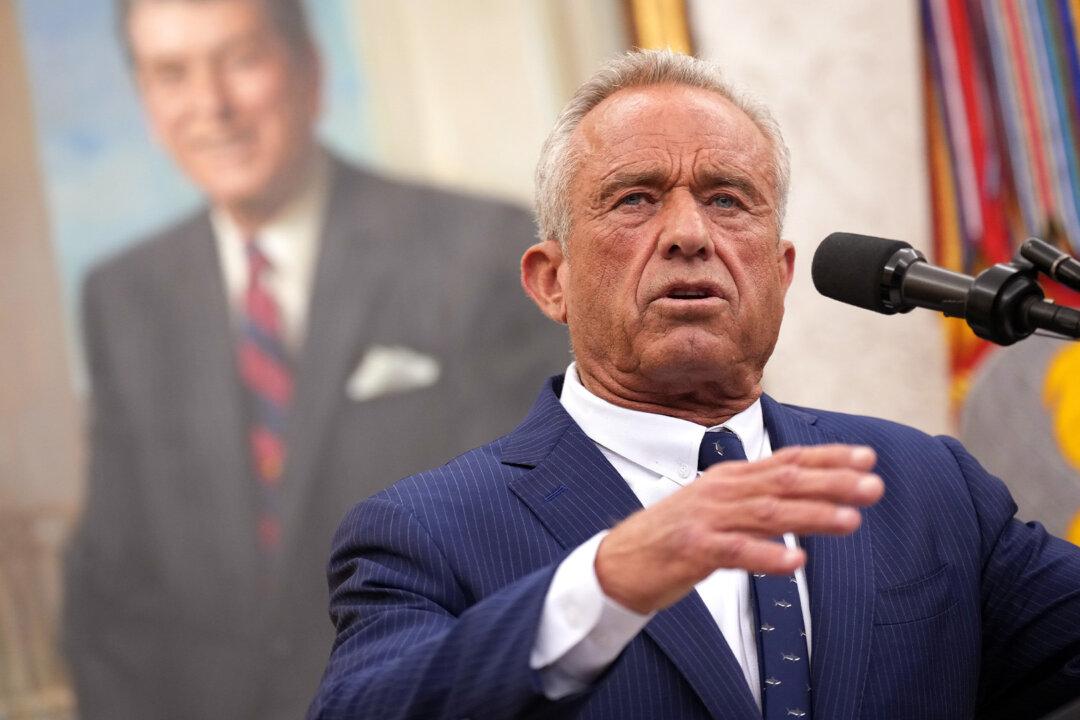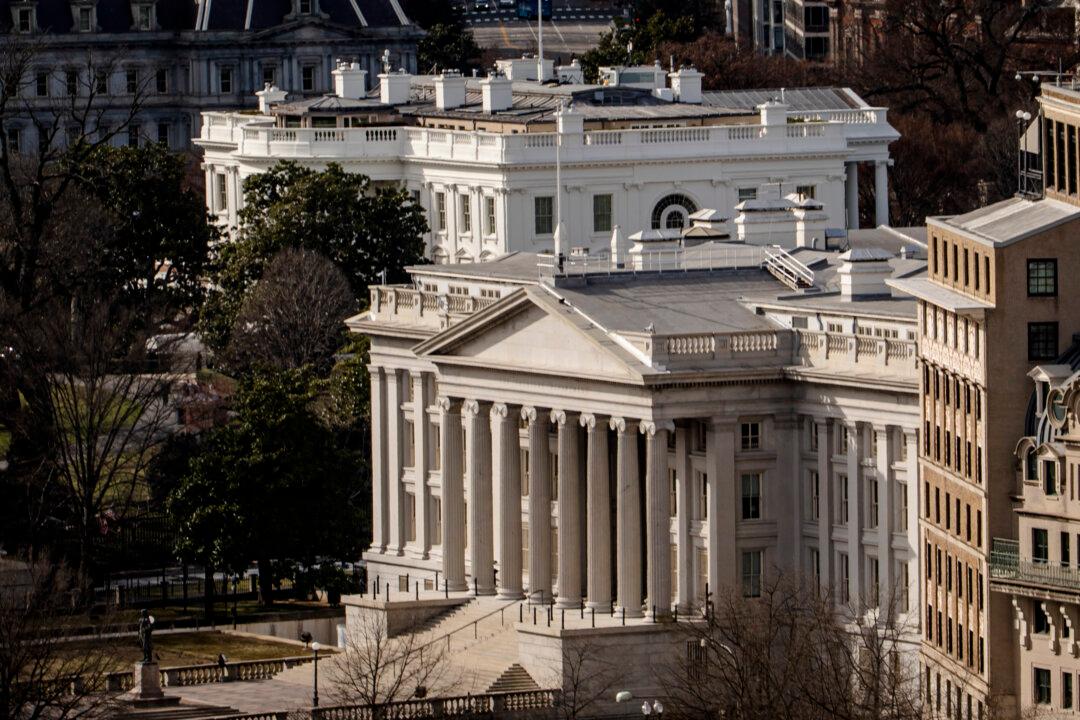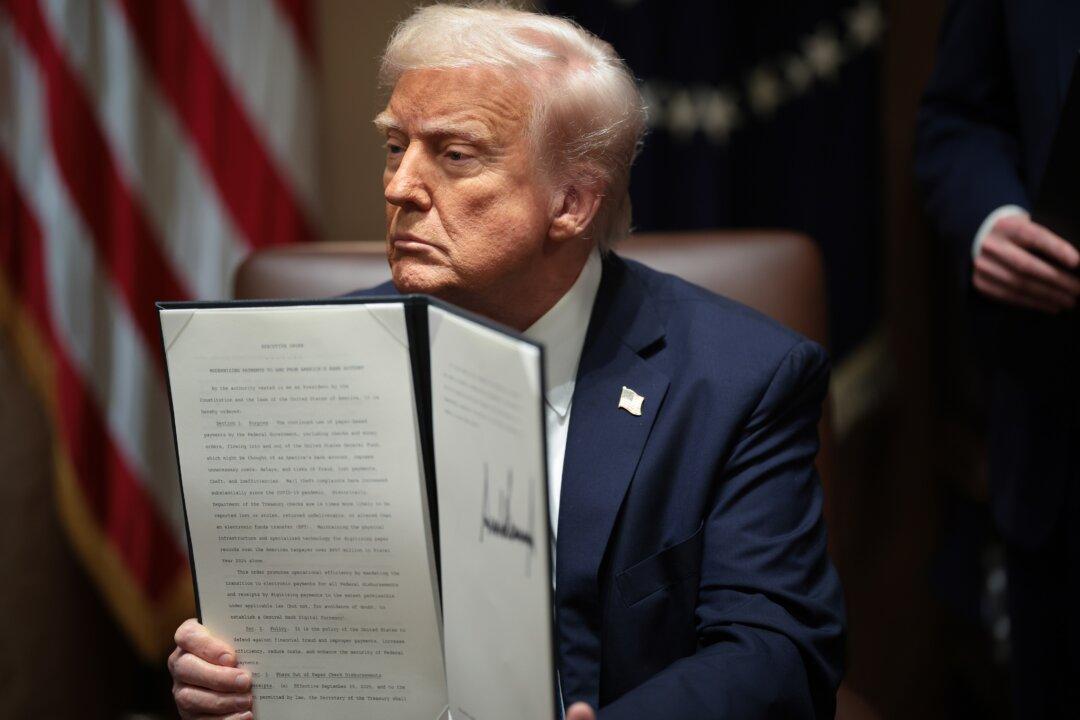Good morning, and welcome to The Epoch Times News Brief for Valentine’s Day, Friday, Feb. 14, 2025. I’m Bill Thomas, we have some gripping stories to share with you right now, and here’s what’s happening nationally and around the world.
The U.S. Senate confirms a highly scrutinized nominee to our nation’s top health-related Cabinet position; President Donald Trump imposes substantial tariffs on a number of countries across the globe, and following a brief delay, the Trump administration wraps up its lucrative buyout offer for federal employees.
Also, European nations weigh in following Trump’s surprising announcement regarding negotiations to end the Russia–Ukraine war, and a significant development in the Middle East regarding Israel and Hamas as the precarious cease-fire agreement hangs in the balance.
RFK Jr. Confirmed as HHS Secretary
Robert F. Kennedy Jr. has just become our country’s secretary of the Department of Health and Human Services (HHS) after the Senate confirmed him by a 52–48 vote.Kennedy will oversee 13 agencies, including the Centers for Disease Control and Prevention (CDC), the Food and Drug Administration (FDA), and the National Institutes of Health (NIH).
As part of his “Make America Healthy Again” campaign, the new secretary has promised to make a number of significant changes throughout the department. He says he believes that little will change regarding the health of Americans until we address the significant influence of giant corporations on federal agencies such as the FDA, the CDC, and the Department of Agriculture.
Additionally, he says he’ll aim to improve our country’s chronic disease epidemic by removing toxic chemicals from our nation’s food supply. He recently told The Epoch Times that he would overhaul the NIH and have the agency focus on the causes of autism and other autoimmune diseases instead of developing drugs.
Prior to his confirmation, most Republicans praised Kennedy for putting his emphasis on addressing our nation’s chronic disease epidemic, while Democrats criticized him for his stance regarding vaccine efficacy. Kennedy has said for years that autism in some youngsters is likely tied to childhood vaccines, which some states mandate for students who attend public schools.
However, Kennedy has consistently said that he is not against vaccines and that he’s simply an advocate for vaccine safety, informed consent, and nonpartisan studies of the efficacy of vaccines.
Trump Announces Sweeping Reciprocal Tariffs
Trump has just signed off on a plan to impose what are called reciprocal tariffs on our nation’s trading partners. He says that in order to combat unfair trade barriers against the United States, whatever these countries charge our country, that’s what we will charge them back—no more and no less.A White House official says that the president’s plan will customize tariffs on a per-country basis, friend and foe alike, allowing the United States to tailor the levies to each trading partner based on their individual actions.
The president pointed out that in general, the United States has low tariffs for goods entering our nation from other countries. He also says that in nearly every case, those countries are charging us vastly more than we charge them, and that those days are over.
The White House official went on to say that this prior lack of reciprocity is a significant source of our country’s large and persistent annual trade deficit in goods, and that the new tariffs will be implemented as soon as possible.
The White House also says that within six months, a top economic adviser will assess the financial impact of the new tariffs, and that they expect them to generate higher tax revenues for the federal government.
75,000 Federal Workers Accept Buyout Offer
A senior administration official has just confirmed to The Epoch Times that nearly 75,000 federal workers accepted the Trump administration’s retirement deal, which allows them to receive full pay and benefits until Sept. 30 without having to go to work.The offer—officially known as the Deferred Retirement Program—was accepted by an average of more than 6,000 employees each day until it ended earlier this week. These new retirees account for just under 4 percent of the entire federal civil service workforce, which is made up of more than 2 million employees.
The White House says that the buyout program is going to save “millions of dollars” for the American taxpayers.
By the way, the offer was originally set to expire last week, but a coalition of organizations led by a union called the American Federation of Government Employees, which represents about 800,000 civil servants, challenged the program in federal court.
That litigation extended the initial deadline for employees to accept the offer before the court eventually allowed it to move forward as planned.
A representative for that union calls the court’s decision a “setback in the fight for dignity and fairness for public servants.”
European Powers Push for Role in Ukraine Peace Deal Negotiations
A number of European nations—including Britain, Germany, France, Poland, Italy, and Spain—are demanding to be part of any discussions regarding the future of Ukraine. They say that only a fair agreement with substantial security guarantees for Ukraine would ensure a lasting peace and be an acceptable resolution to the war.Ministers from all six of those nations, along with representatives from the European Commission, recently met with Ukraine’s foreign minister in Paris. Together, they’re emphasizing that both Ukraine and Europe must take part in any negotiations if those negotiations are going to succeed.
By the way, this meeting among the European countries was held to discuss the continent’s collective strategy regarding Ukraine, as well as their plans for any potential future peace talks.
For their part, NATO’s secretary-general says that any agreement that is reached between Ukraine and Russia must endure. He says that Putin must know once and for all that the war is over, and that Russia can never again try to capture a piece of Ukraine.
Meanwhile, Ukrainian President Volodymyr Zelenskyy says that he refuses to accept any negotiations that exclude him from the process. He says Trump did not tell him beforehand that he was going to speak to Putin, but he also says that moving forward, it’s important for Ukraine to “preserve the support of the United States.”
Hamas to Release Israeli Hostages as Scheduled
The terrorist group Hamas says that tomorrow, they’ll release three more Israeli hostages as agreed, ending for now a substantial conflict with Israel that had threatened the entire deal.Hamas had been vowing to delay the release of those captives. They accuse Israel of a number of violations of the truce, including allegedly failing to allow tents and shelters into the Gaza Strip.
In case you missed it, earlier this week, Israeli Prime Minister Benjamin Netanyahu said that if Hamas did not release the next group of hostages as planned, the cease-fire would be over.
In response, Hamas criticized what they call “threats and intimidation” from both Netanyahu and Trump; however, they say that they don’t want the cease-fire to fail, and that they’re reaffirming their commitment to stick to the terms of the agreement.
Hamas says that mediators from both Egypt and Qatar are working to “remove” all of the hurdles that threaten to compromise the deal. They also say that they’ve discussed their need for additional housing, medical supplies, fuel, and heavy equipment for clearing rubble in Gaza.
By the way, so far, 21 Israeli hostages have been released, in exchange for more than 730 Palestinian prisoners.
It’s almost time to wrap things up but before we go, a couple of additional stories we’re following very closely here in the News Brief newsroom:
And now, it looks like our time is just about up for today, so we’re gonna call it a wrap for the Friday edition of The Epoch Times News Brief.
To make contact with the News Brief crew, simply reach out to us via email—we’re at [email protected]—and you can also leave comments for us on The Epoch Times app, which you can download for free on either the App Store or Google Play.
Don’t forget the News Brief Motto: We’re portable, affordable, and we’re always on demand.
And finally, as we do each and every day on this program, we wrap everything up with a very notable quote, and this one comes to us from Katherine Hepburn, who said:
“Love has nothing to do with what you are expecting to get—only with what you are expecting to give—which is everything.”
Hepburn is an actress who starred in a number of classic films and won four Oscars along the way.
For all of us here at The Epoch Times News Brief, Happy Valentine’s Day, I’m Bill Thomas.
The Epoch Times News Brief program is written each day by David Ross.
Thank you for making us your one-stop source for a concise, accurate, and unbiased daily synopsis of many of the news stories you need to know about.
Enjoy the remainder of your day and we’ll see you right back here next time for another edition of The Epoch Times News Brief.
For now, it’s imperative that we all continue to watch out for one another and have an absolutely superb day today. Bye for now.
